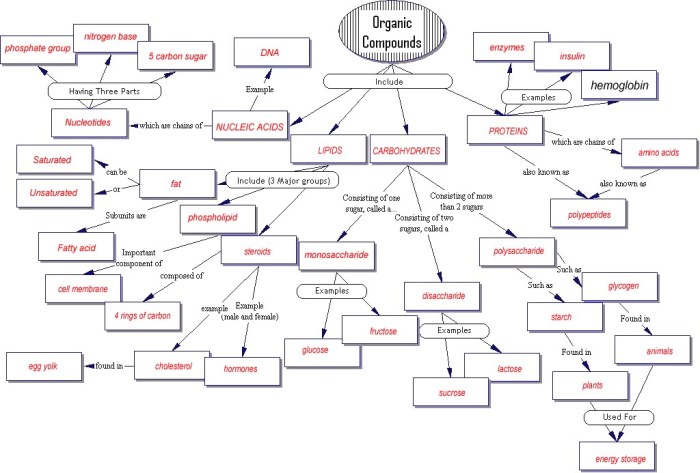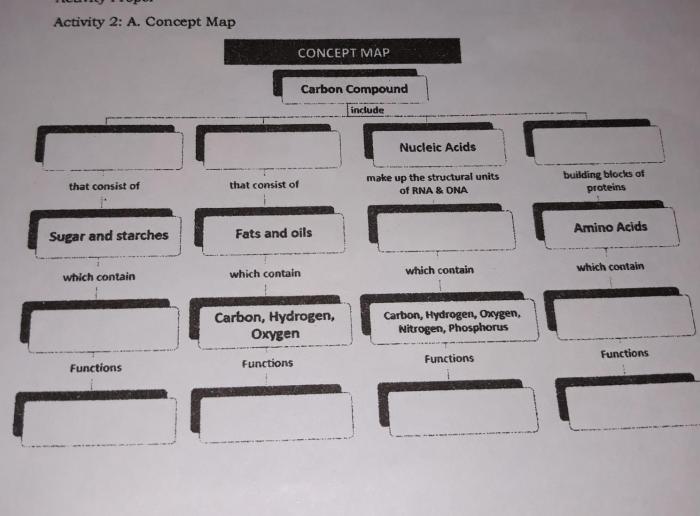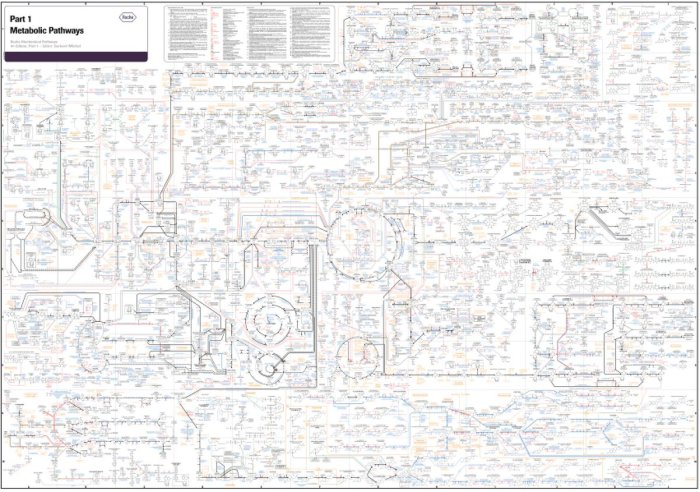The concept map organic compounds answer key unlocks the gateway to a deeper understanding of organic chemistry. It provides a comprehensive framework for visualizing and comprehending the intricate relationships between various organic compounds. By embarking on this journey, we delve into the realm of concept mapping, a powerful learning tool that transforms the study of organic compounds into an engaging and illuminating experience.
Concept maps are graphical representations that connect key concepts through lines, arrows, and other visual cues. They offer a structured and organized approach to learning, allowing students to identify, understand, and retain information more effectively. In the context of organic chemistry, concept maps serve as invaluable aids for grasping the complex relationships between functional groups, molecular structures, and chemical properties.
Concept Mapping of Organic Compounds

Concept mapping is a powerful learning tool that can help students visualize and understand complex concepts. A concept map is a graphical representation of the relationships between different concepts. It can be used to organize and connect ideas, identify key concepts, and illustrate relationships.Concept
maps can be a valuable tool for understanding organic compounds. Organic compounds are a large and diverse group of compounds that contain carbon. They are the basis of all living things and are found in a wide variety of products, including food, clothing, and pharmaceuticals.
Creating a Concept Map
Creating a concept map is a simple process. The first step is to identify the key concepts that you want to include in your map. Once you have identified the key concepts, you can start to connect them with lines and arrows.
The lines and arrows should represent the relationships between the concepts.When creating a concept map, it is important to be organized and to use clear and concise language. You should also use visual cues, such as colors and shapes, to help you identify the different concepts and relationships.
Identifying Key Concepts, Concept map organic compounds answer key
The key concepts that you include in your concept map will depend on the specific topic that you are studying. However, some of the most common key concepts in organic chemistry include:
-
-*Structure
The structure of an organic compound refers to the arrangement of the atoms in the molecule.
-*Bonding
The bonding in an organic compound refers to the way that the atoms are held together.
-*Reactivity
The reactivity of an organic compound refers to its ability to undergo chemical reactions.
-*Functional groups
Functional groups are groups of atoms that give organic compounds their characteristic properties.
Illustrating Relationships
The lines and arrows that you use to connect the concepts in your concept map should represent the relationships between the concepts. The most common types of relationships include:
-
-*Is-a
This relationship indicates that one concept is a type of another concept. For example, “benzene is a type of aromatic hydrocarbon.”
-*Has-a
This relationship indicates that one concept has another concept as a part. For example, “a molecule has a functional group.”
-*Can-be
This relationship indicates that one concept can be transformed into another concept. For example, “an alkene can be hydrogenated to form an alkane.”
Popular Questions: Concept Map Organic Compounds Answer Key
What is the purpose of a concept map?
Concept maps are used to visualize and understand relationships between different concepts. They help learners identify, organize, and retain information more effectively.
How can I create a concept map for organic compounds?
Start by identifying the key concepts and their relationships. Use lines, arrows, or other visual cues to connect the concepts and show how they are related.
What are the benefits of using concept maps to study organic compounds?
Concept maps help improve understanding, retention, and critical thinking skills. They provide a visual representation of complex information, making it easier to learn and remember.

